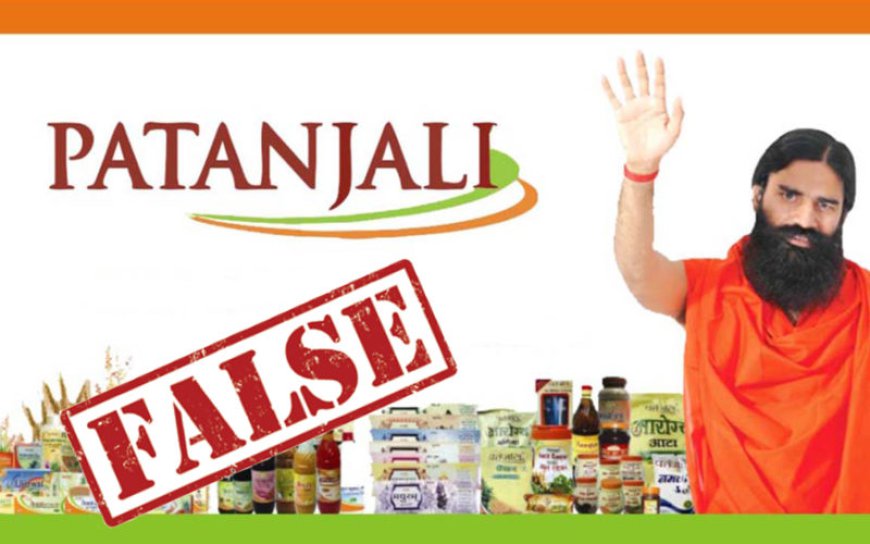In a significant development, the Supreme Court has issued a ban on Patanjali's product advertising, leaving many wondering about the reasons behind this decision.
Here are ten key points that shed light on the circumstances leading to the ban Patanjali Ads.
False Health Claims:
The Supreme Court took action due to concerns about Patanjali's products making exaggerated or false claims regarding health benefits. Ads suggesting unverified medicinal properties raised serious apprehensions.
Lack of Scientific Evidence:
The court highlighted the absence of substantial scientific evidence supporting the claimed health benefits of Patanjali products. Ads must be based on credible research to ensure consumer well-being.

Consumer Misleading:- Patanjali ads
The ban addresses the issue of potential misinformation, emphasizing the importance of accurate and transparent advertising to protect consumers from misleading health promises.
Violation of Advertising Standards:
Patanjali's advertisements were found to violate established advertising standards. The court stressed the need for companies to adhere to ethical guidelines to maintain consumer trust.
Patanjali's Rapid Growth:
The court's decision comes amid Patanjali's remarkable growth in the market. With a vast consumer base, ensuring truthful advertising becomes paramount to prevent mass misinformation.
Consumer Safety Concerns:- Patanjali ads
The ban reflects concerns for consumer safety, aiming to prevent individuals from relying on products that may not deliver the promised health benefits, posing potential risks.
Regulatory Compliance:
Patanjali was urged to comply with existing regulations governing advertising and health claims. The court emphasized the significance of aligning with established norms for consumer protection.
Impact on Competitors:
Unsubstantiated health claims by Patanjali were seen as a potential threat to fair competition. The ban aims to maintain a level playing field and prevent competitors from facing unfair disadvantages.
Role of Advertising Councils:
The Supreme Court's decision reinforces the role of advertising regulatory bodies in monitoring and addressing concerns related to misleading advertisements, ensuring accountability.
Future Implications:
The ban serves as a precedent for companies to recognize the repercussions of inaccurate health claims in advertisements. It signals a need for heightened scrutiny and responsibility in the marketing of health-related products.
This ban by the Supreme Court highlights the importance of truthful advertising, especially in the context of health claims, urging companies like Patanjali to prioritize accuracy and consumer well-being in their promotional endeavors.
Follows Us for More Updates
Like Us on Facebook Page :
Click Here
Like Us on Instagram :
Click Here






























